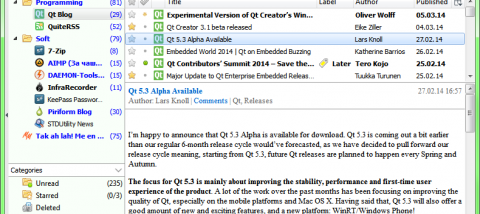

The California Ideology is a mix of cybernetics, free market economics, and counter-culture libertarianism and is promulgated by magazines such as WIRED and MONDO 2000 and preached in the books of Stewart Brand, Kevin Kelly and others. By naturalising and giving a technological proof to a libertarian political philosophy, and therefore foreclosing on alternative futures, the Californian Ideologues are able to assert that social and political debates about the future have now become meaningless. We have called this orthodoxy `the Californian Ideology' in honour of the state where it originated. "There is an emerging global orthodoxy concerning the relation between society, technology and politics. Once you’ve fully developed the technology underpinning your service - be it coordinating food delivery, or processing payments, or displaying intrusive ads to people who just want to read a goddamn page on the Internet without being entreated to buy stuff - then your whole schtick then becomes collecting taxes on a whole ecosystem of economic activity." It’s basically baked in to their business model.

"What if we thought of some of the most lucrative tech companies as essentially tax collectors, but privately-run (and thus not democratically accountable)? Economists call this rent-seeking, and what we’re seeing with a lot of tech companies is that their telos is little more than “rent-seeking as a service”. RSS being killed is a part of the commodification/privatization of knowledge. > How can we reverse the trend that a wonderful piece of tech such as RSS is obliterated without any regard to implications? lawmakers say Amazon may have lied to Congress, Senator Warren urges breakup, India retailers want probe after Reute 6 N 06:56 1.4K Reuters reveals how the illicit copper trade is sapping South Africaħ N 06:46 1.4K Reuters exclusively reports Italy considering extending bank merger incentives to mid-2022Ĩ N 06:43 1.9K Reuters first to report Evergrande’s $1.7 bln Hong Kong HQ sale flops CEO in Hong Kong for restructuring, asset sale talksĩ N 11:44 1.9K Reuters ahead with key Turkish Central Bank news market reactsġ0 N 08:38 1.5K Reuters ahead with news of German economic growth downgrade to lift restrictions Nov 8 for vaccinated foreign travelers market reactsĥ N 04:00 2.5K Reuters impact: U.S. Newsboat 2.10.2 - Articles in feed 'Reuters News Agency' (10 unread, 10 total) - ġ N 06:44 1.2K Reuters exclusively reports Renault sees bigger production hit from chip shortage market reacts 2 N 06:52 1.3K Reuters exclusively reports India presses Qatar for delayed LNG as power crisis mountsģ N 06:50 1.4K Reuters reports Fortescue’s Forrest says Australia must commit to carbon cuts to keep green energy advantageĤ N 05:15 1.3K Reuters reveals U.S. These are the results that I get in my RSS reader, they seem very different from : It looks like it's "", which may be different from ?

But for whatever reason it has been far more valuable to me than any other form of content syndication online. It's mostly because of how RSS originated with blogs I guess, and who was involved in designing it. I have learned a lot from studies, reference works, long form analysis, and books - basically all the quality knowledge I possess has come from one of these sources.Īt best social media has given me occasional links to these things (scattered among an ocean of junk information). This matters to me because at a certain point I realized - I have basically never read anything short form on social media which enriched me in a meaningful way. Of course RSS is a very imprecise filter, but it's basically the antithesis of a Twitter or Facebook feed, where everything is short form and you tend to see whatever serves the platform's commercial interests (i.e. It turns out that these two properties produce a pretty good signal to noise ratio which filters out precisely the kind of trash that has ruined the web over the last decade or two (long form content at least has the possibility of teaching you something or presenting an idea with some kind of rigor and since RSS isn't great at monetization, the worst offenders in media tend to deprioritize it). I am a big fan of RSS one of the reasons (alluded to by this article) is the type of content that tends to get exposed via RSS.įrequently the type of content that gets syndicated via RSS is long form and non-commercial.


 0 kommentar(er)
0 kommentar(er)
